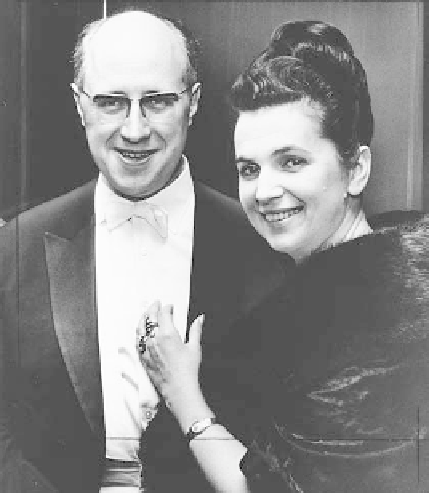Travel Reference
In-Depth Information
geously joined Boris
YELTSIN
and his supporters
in the besieged Russian White House, home of
the leadership of the Russian Republic and cen-
ter of the resistance against the plotters.
Rubinstein, Anton Grigorievich
(1829-1894)
pianist and composer
A virtuoso performer, Rubinstein is considered
one of the greatest pianists of the 19th century.
He was born in the town of Vykhvatinets in
Podolsk province. By the time he was six, the
Rubinstein family had moved to Moscow, where
his younger brother Nikolai, also a talented
musician, was born. A precocious talent, Rubin-
stein first made his debut in Moscow at the age
of nine and then spent the next three years
traveling through Europe with his teacher,
Aleksandr Villoing. In 1844 he moved to Berlin,
where he and his brother studied music theory
for two years under Dehn. He spent another
two years in Vienna studying composition
before returning to Russia in 1848 and settling
in St. Petersburg. There he wrote his first
operas, including
Dmitrii Donskoi, Fomka the Fool,
and
The Siberian Hunters,
which were performed
in 1852-53. After another foreign sojourn from
1854 to 1858, Rubinstein founded the Russian
Music Society in St. Petersburg in 1859, and
three years later the St. Petersburg, or Imperial,
Conservatory, which he first directed until 1867.
From 1871 to 1872 he directed the concerts of the
Vienna Philharmonic, after which he engaged in
a highly successful tour of the United States until
1873. During the 1870s he wrote a number of
other operas, including a biblical opera
The Tower
of Babel
(1870),
The Demon
(1875), and
The Mac-
cabees
(1875), and
The Merchant Kalashnikov
(1880). He served a second term as director of
the St. Petersburg Conservatory from 1887 to
1891. His autobiography was published in 1889.
Rubinstein died in November 1894 in the town
of Peterhof (Petrodvorets), outside of St. Peters-
burg. A prolific composer with more than 20
operas, six symphonies, and five piano concertos
to his credit, Rubinstein is remembered more for
Mstislav Rostropovich (left) with Bolshoi Theater opera
star Galina Vishnevskaia, 1965
(Library of Congress)
tion in Prague in 1950 launched his career as a
solo performer. He was awarded the
LENIN PRIZE
in 1963, later gaining a reputation as a conduc-
tor and a pianist. Rostropovich's troubles with
the Soviet authorities began in the early 1970s
when he gave refuge to the dissident writer
Aleksandr
SOLZHENITSYN
. While traveling abroad
in 1974, he and his wife, Galina Vishnevskaia,
decided not to return to the Soviet Union, and in
1975 Rostropovich accepted an appointment as
conductor of the National Symphony Orchestra
in Washington, D.C., becoming its music direc-
tor in 1977. They were both stripped of their
Soviet citizenship in 1978. Rostropovich raised
the National Symphony Orchestra to new
heights, becoming in the process a leading musi-
cal celebrity. He received an honorary knight-
hood from Queen Elizabeth of Great Britain in
1987. Rostropovich and Vishnevskaia returned
to great acclaim to the Soviet Union in January
1990, and their citizenship was restored. At
the time of the
AUGUST COUP
of 1991 against
GORBACHEV
's government, Rostropovich coura-


Search WWH ::

Custom Search